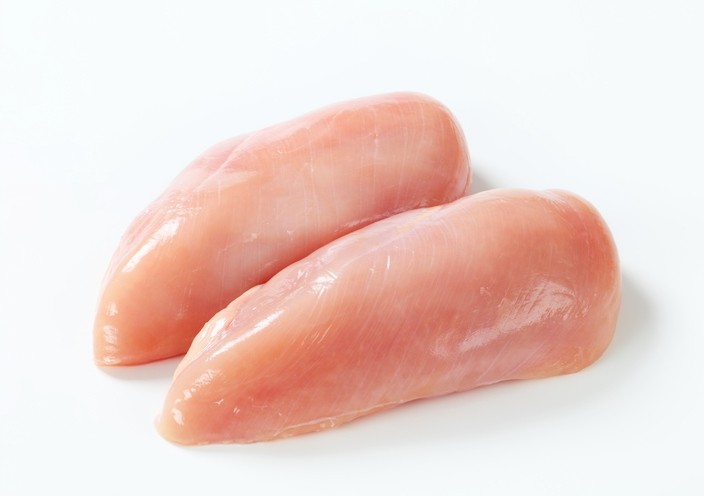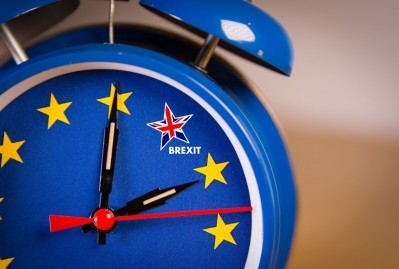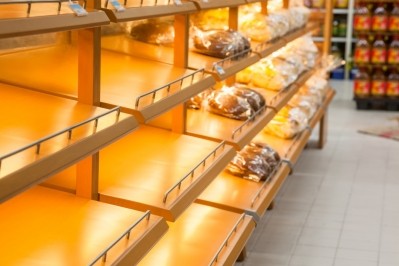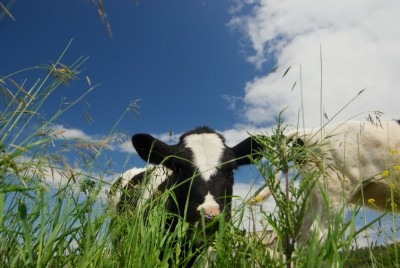UK Trade Secretary won’t rule out post-Brexit imports of chlorine chicken and hormone beef: ‘It’s not about food safety per se’

Speaking during a Q&A at the Institute of Government yesterday (15 May), Fox said that the complexities of World Trade Organization rules meant that the debate over whether to allow these products – which are currently not allowed to enter the European Union – was “slightly different” to the question of whether to drop the UK’s own high production standards.
Washing chicken in chlorine to remove harmful bacteria was a practice banned by the EU in 1997 over food safety concerns. The ban has effectively blocked virtually all imports of US chicken meat, which is generally treated by this process. Similarly, the US and EU have been engaged in a long-running WTO dispute over beef raised using hormones to promote growth.
For many UK consumers, chlorine-washed chicken has come to symbolise fears about animal welfare and environmental standards – as well as food safety - after the UK’s withdrawal from the EU. The US has been pushing for the UK market to open to these agri-food products as part of any free trade negotiations after Brexit.
“There is no argument about food safety on chlorine washed chicken. It has been an argument about animal welfare. It is not about food standards per se and that is slightly different debate and much more difficult to quantify because the legal definitions at WTO are much less [clear],” Fox, who heads up the department responsible for opening up new markets outside of the EU’s trade deals, said.
A race to the bottom?
Echoing statements made by environment secretary Michael Gove, Fox confirmed that it was not in the national interest to lower regulatory requirements for producers operating within the UK.
“I’ve said it ‘til I’m blue in the face, including in the House of Commons… that we will not reduce our standards as we move forward. We have legislation that sets out food safety standards. We have no intention of changing that.”
Fox said that the UK is known internationally for the quality of its food products and any move to reduce this would have a detrimental impact on international trade, he suggested.
“There is a trading reason why we shouldn’t want to change our standards. And that’s because of the impact on our exporters.”
Fox cited a study carried out by Barclays, which found around 60% of Chinese and Indian consumers would be willing to pay more for a product they knew was from the UK. “Why? Because you put that Union Jack symbol on it and it is a sign of quality.”
Fox stressed that a post-Brexit world would not be a race to the bottom for UK food producers, insisting that the industry is unable to compete on cost alone.
“We can’t compete globally at the low cost, low quality end of the market. We have too many fixed costs in our economy. We need to complete at the high-quality end of the market. Therefore maintenance of standards is part of that guarantee of quality in the goods we export. It would be self-defeating to see us reduce our standards. There is no advantage from a trading perspective in doing so.”
Quality the industry’s ‘top priority’
High standards of food production should remain the industry’s “top priority” after Brexit, Food and Drink Federation chief scientific officer Helen Munday told FoodNavigator.
“The UK food industry's top priority is to maintain the high standards of quality, safety, and animal welfare, of which we are proud, to maintain consumer confidence.”
However, Munday - who represents the interests of UK food processors and manufacturers - took an ambiguous stance over the import of food produced using 'different' production standards to those allowed in the UK. Trade discussions will need to address this issue and the UK's position should be supported by scientific evidence, she suggested.
“Differences in practices in food production have often been a barrier to trade deals in the past, and as such thorough discussions addressing a number of elements will be necessary. Any review of UK food standards would need to be fully informed by scientific evidence in the risk assessment and risk management of food safety measures,” she said.
In contrast, the National Farmers Union has repeatedly spoken out against allowing agri-food products produced to lower standards – and therefore with a lower cost-base – into the country.
“It is imperative that any future trade deals, including a possible deal with the USA, do not allow the imports of food produced to lower standards than those required of British farmers," a spokesperson told FoodNavigator.
“British people value and demand the high standards of animal welfare, environmental protection and food safety that our own farmers adhere to. These world-leading standards must not be sacrificed in the pursuit of reaching rushed trade deals. We should not accept trade deals which allow food to be imported into this country produced in ways which would be illegal here."
UK consumers ‘united in opposition’
This sentiment was echoed by UK consumer organisation Which?. The watchdog issued a strong-worded reaction to Fox’s comments, insisting that these are, in fact, food safety issues.
“Liam Fox is wrong to suggest chlorinated chicken is not a food safety and standards issue. One of the reasons why foodborne disease rates are so much higher in the US is that these measures are often used as a desperate attempt to make up for widespread safety problems in food production – leaving bacteria like salmonella to run rampant,” Caroline Normand, Which? director of advocacy, stressed.
According to figures from the US Centers for Disease Control and Prevention (CDC) around one in six Americans suffer from foodborne diseases every year. The equivalent figure in Britain is around one in 60, according to the Food Standards Agency’s estimate.
Moreover, Normand said, UK consumers almost universally oppose lowering food standards in the country, with nearly seven in ten saying they would not be comfortable eating chlorine washed chicken.
“Our research has shown British consumers are united in their opposition to lowering food standards as part of any future trade deal,” she stressed.
“Brexit is an opportunity to design a joined up food and farming policy that ensures food is produced to the highest standards – the nation’s health needs must not be used as a bargaining chip that could be given away to facilitate transatlantic trade.”
Future deals should be scrutinised
The NFU stressed that future trade deals should be "scrutinised at a high level" by Parliament and industry so that the Government isn't able to force "rushed" agreements through. The Farmers' Union is calling for a commission to establish procedure and safeguarding measures.
“We have called for a high-level commission to be convened, bringing together government officials, industry representatives, civil society groups and experts in food and farming.
“This commission needs to be charged with producing a report before the end of the year. Critically the commission would need to make recommendations on how future trade deals should be scrutinised at a high level by Parliament and industry, and the Government would need to act on those recommendations. Warm words are nice but we need firm commitments and clear actions.”

















